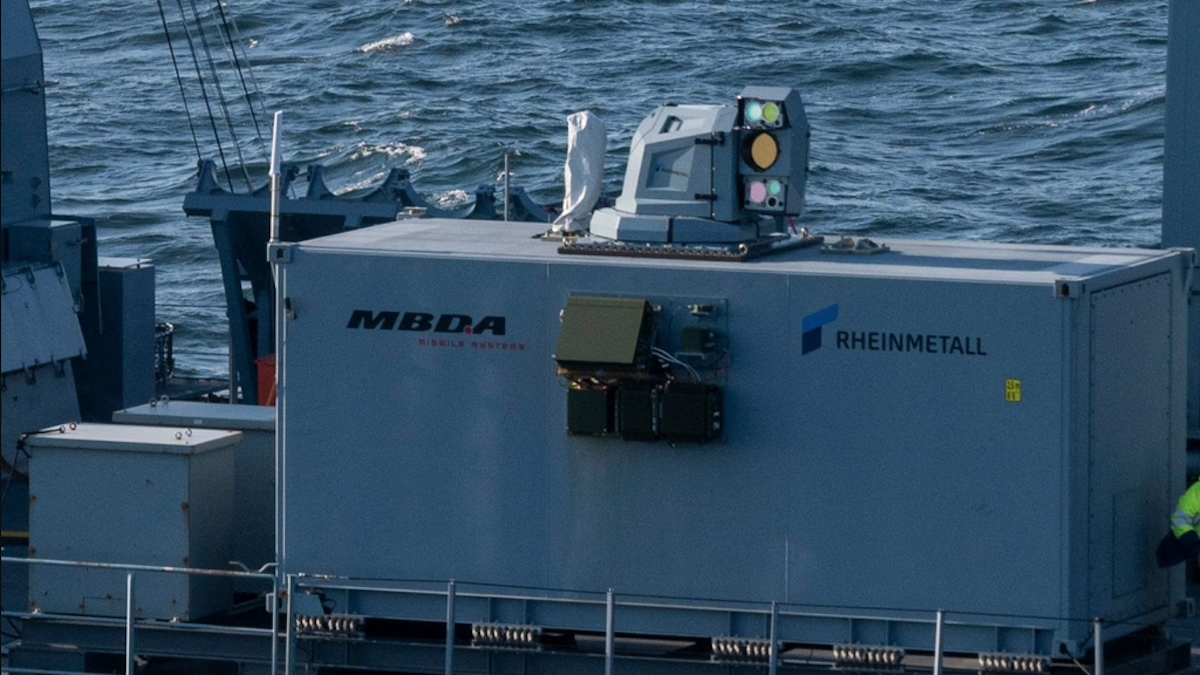MBDA, Rheinmetall partner on maritime anti-drone laser
MBDA and Rheinmetall have agreed to continue their successful joint development of laser weapons, with the latest partnership focused on having a maritime anti-unmanned aerial vehicle (UAV) laser weapon to the market within the next five to six years.
The venture looks to produce an affordable maritime laser weapon for use on ships in lieu of expensive air defence missiles.
Between June 2022 and September 2023, both firms demonstrated a laser weapon which had been integrated on the German Navy’s Sachsen-class frigate, Sachsen. During this on-board trial, the demonstrator fired over 100 test shots.
Laser-focused on drones
The United Kingdom had also successfully test-fired the DragonFire laser directed energy weapon (LDEW) against aerial targets for the first time this January, the result of collaboration between major partners such as MBDA, Leonardo and QinetiQ. It costs less than US$13 per shot to deliver intense high-powered beams of light over long ranges at the speed of light. The system would likely be a long-term low-cost alternative to take down UAVs via missiles.
Recently in July, Raytheon’s High-Energy Laser Weapon System (HELWS) mounted on a British Army vehicle also completed a test firing. Utilising technology similar to the DragonFire, the HELWS is a lightweight portable system that can be fitted on vehicles to counteract NATO Class 1 UAVs.
In the same month, South Korea also announced plans to begin production of its Block-I laser weapon this year. To be manufactured by Hanwha Aerospace, the platform will provide defences against smaller UAVs at close range by firing laser beams generated by fibre optics at targets. It can silently fire laser beams invisible to the naked eye as long as electricity is supplied, with each shot costing a little over US$1.40 and said to have attained 100% success in downing targets in live-fire tests. -shp/adj/dl (Pix:MBDA)


